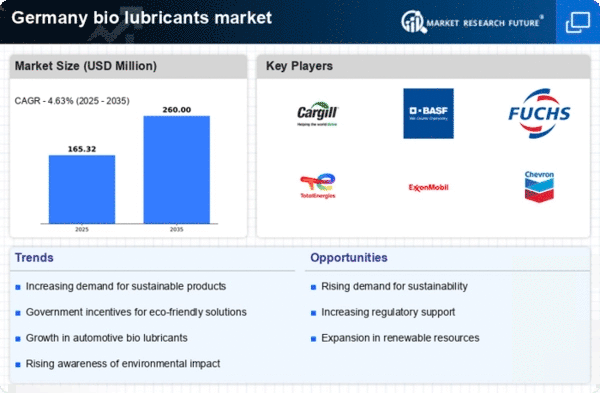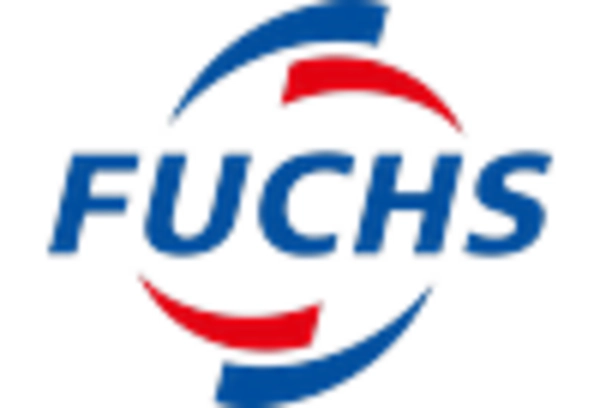Market Share
Germany Bio-lubricants Market Share Analysis
The Germany Bio-lubricants Market is growing rapidly, driven by the increasing importance of sustainability and a shift to green alternatives in the industrial sector. Firms in this market are adopting a range of strategies aimed at securing market share as they compete within this dynamic environment. One of these central policies is strong-product innovation. By developing bio-lubricants that are effective in lubrication and meet stringent environmental standards, companies are investing in R&D. The goal is to create high-performance bio-based alternatives to conventional lubes which will attract eco-sensitive sectors and make them market leaders themselves.
In addition, cost leadership is one more essential positioning strategy for market shares within the German Bio-lubricants Market. In order for firms to be able to produce such products at much cheaper prices there should be optimization of production process through which manufacturing costs can reduce. Accordingly, they can provide these bio-lubricants at competitive prices enabling all industries interested in balancing between performance and affordability to use them. Striking the balance between pricing and being ecologically sustainable would enable companies with a large market share as well as greater adoption of bio-lubricants.
Partnerships and collaborations have become vital factors shaping how corporations position themselves within the Germany Bio-lubricants Market space. Companies’ supply chains could be strengthened and access gained to cutting-edge technologies via alliances with raw material suppliers, research institutions, industry associations etc., thus collectively taking on issues like sourcing sustainable feedstocks. Such endeavors also serve as mechanisms for creating strong brands that not only foster trust among consumers but also build bio-lubricant technologies on a broader scale.
Additionally, geographic expansion is part of market share positioning in the German Bio-lubricants Market. Given that Germany has been known for its environmental awareness tendencies, businesses are strategically growing their reach through building manufacturing capacities and distribution networks across different regions hence serving both Germany’s rising demand for bio-based lubricating oils and contributing to the broader European and global sustainability goals.
Educational and awareness campaigns are components of market share positioning strategies in the Germany Bio-lubricants Market. For this reason, companies are engaging in various initiatives that aim at educating end-users, manufacturers as well as regulatory authorities on how bio-lubricants can be beneficial in terms of reducing environmental hazards. Through involvement in educational campaigns, businesses do not only establish stronger market presence but contribute towards wider adoption of sustainable lubrication practices.
Lastly, technology adoption and innovation remain critical elements of market positioning in the Germany Bio-lubricants Market. Companies have been focusing on investing in latest technologies that improve performance characteristics of bio-lubricants such that they can outperform conventional lubes. This is because technical advances are continuous with respect to formulation of bio-based lubricants and coming up with specialized products for different applications; all aimed at maintaining a competitive edge among these green alternatives.


















Leave a Comment